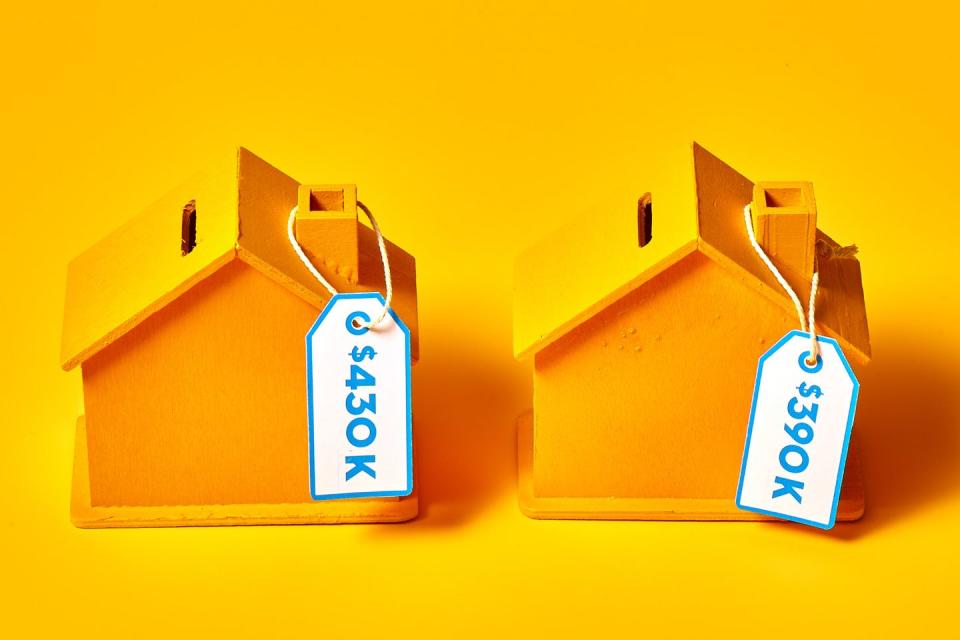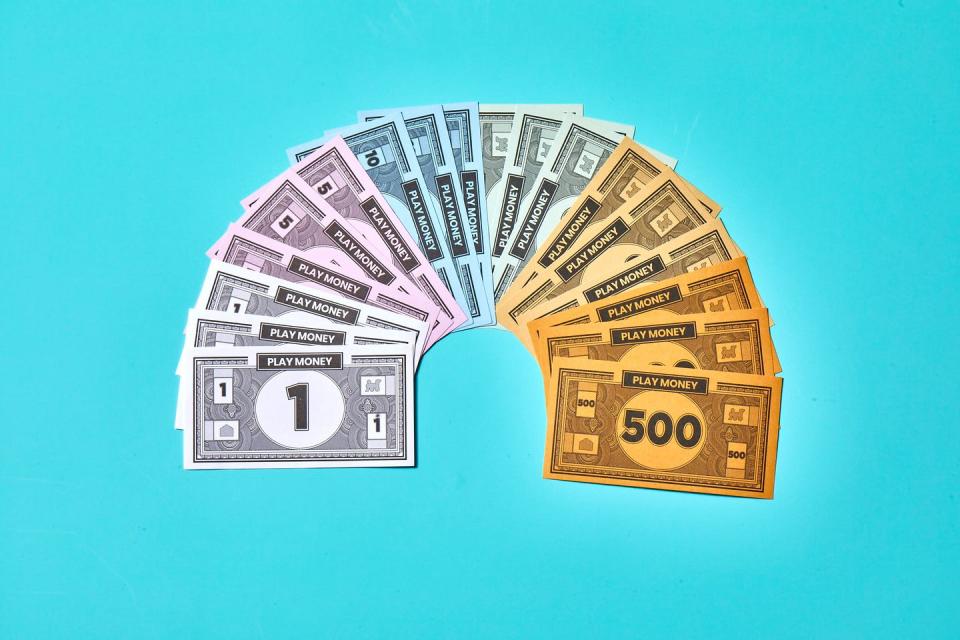When My Home Appraisal Came Back Low, I Realized We Need to Change the System

Tiffany Aliche is a financial educator, founder of The Budgetnista and author of Get Good With Money.
In May 2020, the housing market in Newark, NJ, where I live, was booming and interest rates were really low, so my husband and I decided to do a cash out refinance on our home. To do that, you have to have your credit reviewed and submit information about your job, income and debt. You also have to get your home appraised. When I found out that last part, my stomach sank. It’s not that I didn’t think our house was valuable — we’d recently gut-renovated it, including replacing all the plumbing and electrical, every door knob and hinge. It’s because I know the statistics: Black-owned homes like mine are appraised on average 23 percent lower than similar homes in white neighborhoods.

Here’s what you won’t find in any homeowner’s manual, but what is common knowledge to most Black homeowners: In order for your house to appraise for as much as possible, you’ve got to basically erase your Blackness from your home. That means taking down artwork and putting away family photos and books. Many Black families even ask a white person to greet the appraiser and act as if the house is theirs.
Because our appraisal was early in the COVID-19 pandemic, we weren’t comfortable asking a white friend to stand in for us. After some discussion, my husband and I decided to go through with it anyway. We took down all the pictures of our family, any artwork that looked like Black artwork, just took ourselves out of it entirely. We also had our home professionally cleaned before the appraiser came, because I didn’t want to give him any reason to find fault in our home. It’s a shame we had to remove all traces of ourselves from our own home, but we knew that’s just what you have to do. That’s just the world we live in.

The day of the appraisal
The home we live in was built in 1920, but less than five months before we had the appraisal done, we totally gutted it. We put in new electrical and plumbing and replaced every doorknob, every hinge, every everything to bring our beautiful historic home back to life. Our copper pipes were still copper-colored. And when the appraiser showed up, he was really positive. He kept saying, “Oh wow, this is beautiful. What a gorgeous home.” He was complimenting our contractors and everything.
I didn't tell him that my husband and I had done the renovations ourselves. I heard him comment to his colleagues that, “the person who owned the house before must have done this.” It was as if he couldn’t conjure the notion that a Black couple could have spent this amount of money to make this house beautiful.
Our appraiser was generally pleasant, but honestly, most people who carry around bias, unconscious or otherwise, can be pleasant people. But I got a bad feeling in my gut—not because of anything that he said—but just because when you're Black long enough, you know how things go.
A week later, the appraisal came back. At $390,000, it seemed really low, especially since property values in the area were picking up. I asked a realtor friend of mine for a second opinion. Based on comparable properties in the area, including similar homes that she’d recently sold, she said she’d assume it was worth about 30 to $40,000 more than the appraised value. I just felt sick about it, but at the same time, I wasn’t surprised. I went on social media to talk about what went down. A reporter caught wind of the discussion and asked if they could do their own appraisal, for consideration for a home appraisal story they were working on. When I agreed, they hired an independent appraiser to take a look at the one we had done. We didn’t end up included in the story, but it really confirmed what I already knew in my gut.

Another appraiser found discrepancies
When the second appraiser looked at the detailed report ours drew up for us, he flagged a few things that could have brought down the appraised value of our home. For one thing, the houses the first assessor chose to compare ours to, in terms of size and location, hadn’t been renovated at all, whereas ours was totally redone. Another flag had to do with the way historic homes like ours are assessed. Ours was listed at a “C3,” which means some updates have been done, but not a complete gut renovation. It should have been a “C2,” meaning virtually all built-in components have been recently repaired, refinished, or rehabilitated. That’s what really tipped me off that there was bias at work. Because how do you make that kind of mistake – taking a home that’s been totally redone, that you complimented, and compare it to homes that haven’t been renovated at all?
The second appraiser came back with an estimated value of $430,000 for our home. While some aspects of appraisals are subjective and they can vary depending on a number of factors, a $40,000 gap is hard to explain.
It was just really disheartening to know that one man has that kind of power to lower the value of our home by tens of thousands of dollars. I was so dejected. I bust my behind to create wealth for myself and my family. I’ve gone from being a preschool teacher to a multi-business owner, to running a business that makes eight figures a year, and someone can still come to my home and say it's not worth what it's worth, just because of what I look like. That's what's so hard about being Black. None of your hard work or accomplishments matter.

Sharing my story brought others to light
When I told my story, the response that I got was overwhelmingly Black people being like, “Yeah, me too.” And overwhelmingly, many of the white folks that follow me were like, “That's not true.” And what’s so frustrating about that is, you don’t know. I can’t tell a man what’s like to be a man, because I’m a woman. But I certainly know what it's like to be Black.
Emotionally, I was disgusted. I was frustrated. But practically, we also missed out on a lot of money. Here's what it all comes down to: If you tell me that my house was worth $40,000 less, that's $40,000 less than I can pass on to my children and $40,000 less that they can pass on to their children, that then doesn’t get invested in our future. Literally billions of dollars get siphoned away from Black and brown communities via this process and that perpetuates a wealth gap that keeps people down. And until you start the process of buying or refinancing a home as a Black person, you’d never even know about it.
If we had cash refinanced, we could have invested about $200,000. With the way the market was at the time, many people made about 300% back. So multiply 200,000 by 300%, and see what we lost out on. After the anger and frustration wore off, I knew something had to be done.

I drafted a bill to help people like me
I’d previously worked on a law about financial education in middle schools with New Jersey State Assemblywoman Angela McKnight, and she reached out and asked if I wanted to work together again. So we drafted a bill that makes it illegal to discriminate during a home appraisal. But more than that, it permits the State Real Estate Appraiser Board to revoke, suspend or fine appraisers or appraisal management companies who knowingly engage in a discriminatory appraisal of a residential property on the basis of race or national origin.
This bill is important for two reasons. First, I want to educate homeowners on what an appraisal means, and what to watch out for that might tip you off that discrimination has taken place. Having a checklist is important, because homeowners, especially first-time buyers, might not know what to look for. Double-check things like room sizes in your home against what they list on the appraisal, the number of bedrooms and bathrooms, and whether the homes they list as comparable actually are. Make sure amenities like a deck, garage and appliances are all on there. And for historic homes, watch out for that letter grade to make sure the description actually matches your home.
And second, if you feel your appraisal was done illegally or incorrectly, this bill means there’s something you can do. In order to have real power, you have to have legislation on your side. Right now, the bill is up for review by the Assembly Regulated Professions Committee.

Educating homeowners gives them more power
Especially after my experience, I think it’s really important to let the appraisers know that they’re dealing with an educated homeowner and that they can lose their license if they’ve been found to be using conscious or unconscious bias when they appraise a home. With their license on the line, appraisers will be more mindful about how they appraise property. Once this law passes, people will have some sense of what to look for to know whether their appraisal has been done properly and if it’s not, have some recourse that doesn’t involve paying for another appraisal. Because not everybody can do that, and even if they can, there’s no guarantee that one will be fair.
In the end, my husband and I opted not to refinance after all. I was just so disgusted by the process. But I will say, this experience made me want to continue working toward education. I found one bit of joy that some people from banking institutions who heard my story said they’re going to look over their appraisal process, because they did not realize just how terrible folks were being treated. I’m just glad that we’re doing something to make a difference.
You Might Also Like

